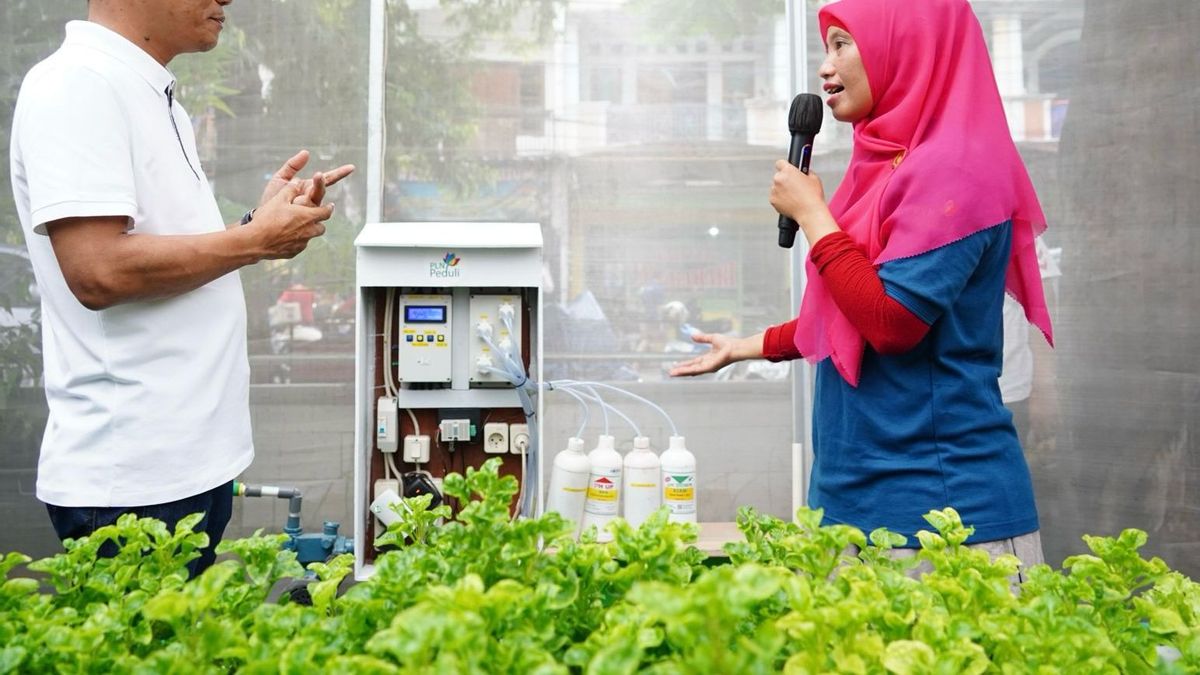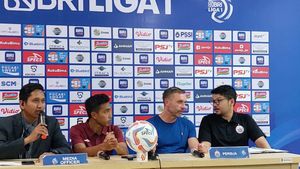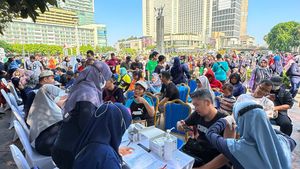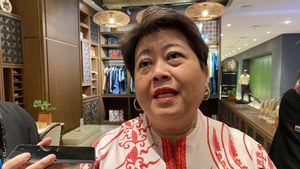JAKARTA - The Women Farmers Group (KWT) D'Shafa fostered by PT PLN (Persero) was able to get twice the turnover after successfully turning waste shelters into productive agricultural land through the Edufarm Malasani agroeduwisata.
With the smart farming method, the turnover of this farmer group located in East Jakarta has increased from the previous average of IDR 80 million to IDR 125 million every month.
Edufarm Malasani is a smart farming program by processing urban agriculture or urban farming from upstream to downstream, starting from planting in the green house using Internet of Things (IoT) technology, post-harvest processing into ready-to-eat food, to marketing both online and offline.
The chairman of KWT D'Shafa Haryati said that the yield of Edufarm Malasani increased 60% from the previous 50 kilograms (kg) to 80 kg after using smart farming in the green house.
"Alhamdulillah, using smart farming yesterday during the summer, there are other locations whose harvests are not optimal and even failed to harvest, but at Edufarm Malasani the harvest can be doubled," said Haryati in her statement, Sunday, December 17.
This increase is influenced by good nutrition, humidity, and irrigation and is better protected against pests. Haryati added, KWT D'Shafa previously only processed urban farming with a hydroponic manual system on limited land.
However, currently, 13 KWT D'Shafa members are able to process waste storage areas using the smart farming method of using IoT in regulating moisture, temperature, fertilization, and nutrition management.
"This program has succeeded in empowering members of the KWT D'Shafa group and the surrounding community who previously did not work, now have additional income," said Haryati.
PLN President Director Darmawan Prasodjo conveyed PLN's commitment to support the increase in productivity and operational efficiency of farmers in Indonesia through the electrifying agriculture (EA) program. Through this program, PLN seeks to create a Creating Shared Value (CSV) for the community and the surrounding environment through various electrical technology innovations.
"We hope that the quality and quantity of productivity of our farmers can increase, progress and be modern, including for Malasani farmers, electricity for watering and supporting smart farming," said Darmawan.
General Manager of PLN Main Distribution Unit (UID) Jakarta Raya Lasiran said PLN is ready to support smart farming methods as an innovation in the agricultural sector. According to him, this method is one of the innovations that can be used by farmers in urban areas.
"Farming in urban areas certainly requires high innovation because the land is limited, including smart farming in Makalasari, the results are extraordinary," said Lasiran.
SEE ALSO:
Furthermore, Lasiran said he would be ready to fully support smart farming with electricity reliability so that the harvest and production developments are maximized. Currently, electricity supply in Jakarta has a 36% reserve where people can use it for various aspects such as agriculture, business, industry, households, and electric vehicles.
"We at PLN support electrifying agriculture where electricity supports the agricultural world, such as in Malasani, electricity for watering and supporting smart farming," said Lasiran.
The English, Chinese, Japanese, Arabic, and French versions are automatically generated by the AI. So there may still be inaccuracies in translating, please always see Indonesian as our main language. (system supported by DigitalSiber.id)


















